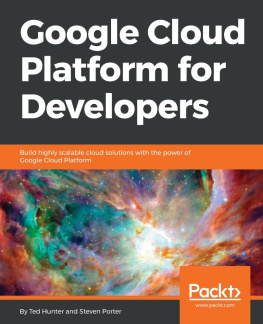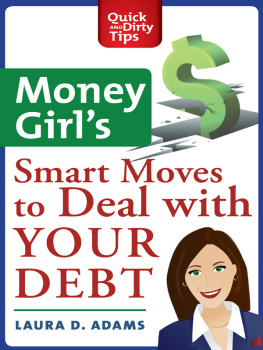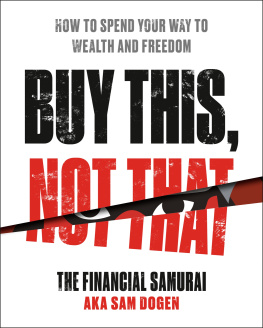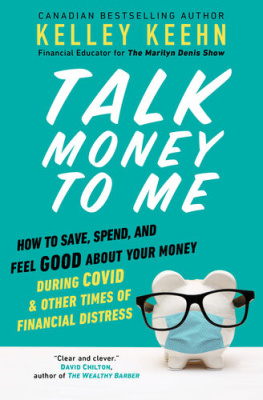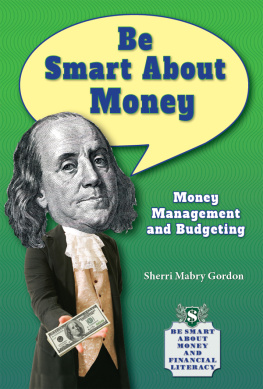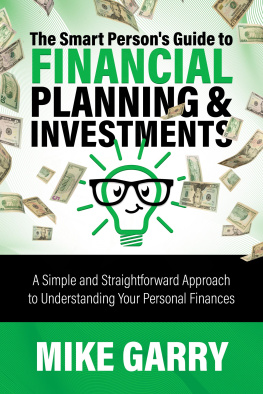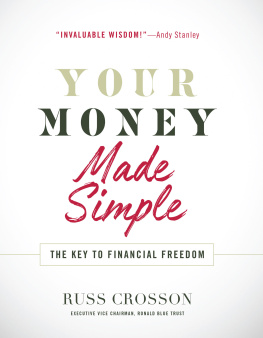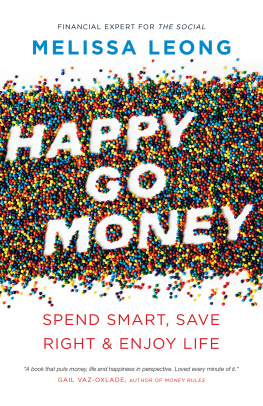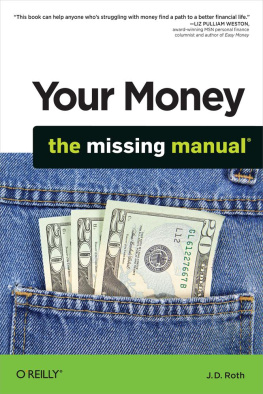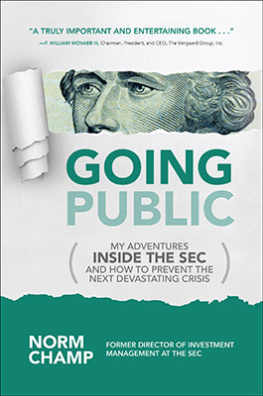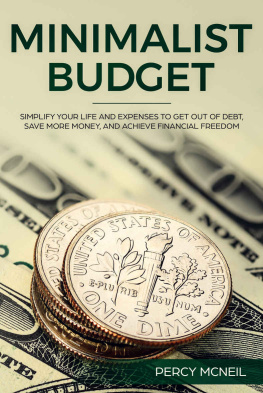Acknowledgments
It has been exactly two years and six months since I began this project and, finally, the book is ready to go to the printer. When I started, I had no idea what a huge job I had taken on. As it turned out, I sure needed help and I am very grateful for the support I received.
First I would like to thank my daughter-in-law, Gabrielle Hunter, for all that she has done. By the end of the first year I could see I needed help; a project manager and early editor, someone with the right background and aptitude for what I now realize was a very challenging job. It was obvious to me that Gabrielle would be an outstanding candidate for the job. Gabrielle, in turn, had recently established her own company to provide exactly the kind of support I needed. The problem was that I have always felt that mixing family and business was a bad idea, as did Gabrielle. So we talked and decided to make an exception and do it, but on one condition. If either of us ever felt it was hurting our relationship, the collaboration was to be ended immediately. Well that never happened and Gabrielle has just been fabulous at the job. Gaby, I cant thank you enough.
The next person I wish to thank is my brother, Ron, someone I greatly admire. When I produced the first version of the book in November 2008 and gave it to a group of people to read, I discovered that there was almost no feedback on the content of the book, just on the writing style and organization. Everyone seemed to just accept the information and advice I had provided as correct and complete. This was not good. There had to be errors and omissions regarding the content. Fortunately, I knew of someone with the business, financial, and life experience necessary to watch my back and double-check what I had to say. Thank you so much, brother, for being there for me, as always, and for being so very good at all that you do. It has meant a lot.
I would also like to thank my editor, Susan Suffes. Susan, you have been a delight to work with and have helped us so much in insuring that the critical messages of this book have been delivered in the best possible way.
I also owe a big thanks to my eldest son John for his advice, expertise, and effort in making all the graphs in the book, and to my son Dan for creating the user software on my website.
Lastly, I wish to thank the many professionals who have double-checked or helped me in areas where I needed it. Id like to extend a special thanks to several individuals in particular. My thanks to Don Guthrie of Davis, California, for his assistance on chapter twelve, Buying and Selling a Home. It is a subject I know well. The problem was that its been thirty years since I worked in that field and I had to assume that Id lost touch with the subject some and that some aspects had changed. Don was terrific in filling in some key holes and insuring that what I had to say was reasonably thorough and fully up to date. Thanks, Don. Much appreciated.
Finally, I wish to thank Doris Keller of Sacramento, California, for her assistance on the subject of paying for an education, a subject she knows so well from her long career assisting on such matters. Also, thank you to my attorney, Dave Jorgenson of Maui, Hawaii, on the subjects of legal matters and estate planning. Thanks, guys.
Introduction
Its Time to Take Control of Your Money
Over the past few years Ive watched in dismay as millions of people who believed in the established financial system saw their dreams for financial independence vaporize in a sea of financial mismanagement. I witnessed friends and family members from a wide range of ages and backgrounds negatively affected by their lack of knowledge about money and by the vulnerability this creates. I saw that the financial turmoil that showed up in early 2008 had barely begun to bring to the surface the depth of the incompetence of the financial services industry and the vast majority of its alleged experts. I saw, with great clarity, the depth of the myths, and, in some cases, the outright lies that had been told about money and the damage they had done. Worst of all, I realized that all of this would just continue to happen unless something was done, and so I decided to do something about it.
In Money Smart , I explain what you need to know to be successful with money in a comprehensive and easy-to-understand way. I cover how to spend money, save it, get out of debt, buy or sell a home, buy a car, invest, and achieve financial freedom. Youll learn how to make financial decisions that will be in your own best interest and not in the interest of others. Whether youre a high school dropout or you hold a PhD in economics, this book is for you.
Why listen to me? For one thing, over the last twenty years Ive called, and taken advantage of, every one of the major highs and lows of both the stock and real estate markets . Further, like you, Ive had my share of financial ups and downs. Everything I did with moneyand what money did to me and for megave me invaluable experiences that had nothing to do with financial experts or their advice.
I discovered that being money smart isnt complicated. It doesnt require advanced courses in finance or expensive seminars. All it really requires is a basic understanding of the true fundamentals of successful personal money management. But looking at all thats been happening with money, I realized that this straightforward formula has gotten lost. Its time to find it again. Thats what Money Smart is all about.
My Personal Financial Education
One day, many years ago, my father sat me down and told me he signed me up for a paper route as an addition to my other existing business ventures. (I already was a junior door-to-door salesperson, had a lawn-cutting service in the summer, and worked as a trapper in the winter.) Dad said that from then on, if I wanted anything I had to earn the money myself. He would feed me and provide a roof over my head, and that was it. Dad was true to his word. Did I resent it? Nope. I went and did what I had to do. I learned a heck of a lot very quickly, I can tell you; I had no choice. Through trial and error and with a decent amount of common sense, I quickly piled up many life lessons. To this day I go back to the basic lessons I learned from those experiences. They are the foundation for all I do when it comes to money. By the way, it was sixty years ago when I added that paper route. I was nine -years-old.
My father never gave me another penny until I went to college and he paid part of my tuition. I worked my way through Syracuse University where I earned a BA in economics and business. As an undergraduate I held jobs as a dishwasher, a rock bandleader, and a YMCA counselor. After spending two years in the Army as a military police officer, I had a very successful thirteen-year career with the International Paper Company and Johnson & Johnson as one of the pioneers in large-scale computer-based business systems design and implementation.
In 1977, a friend and I started a real estate brokerage company from scratch. We grew it to five offices with over one hundred agents and we ran it for ten years. By the mid-1980s I was a multi-millionaire. I drove a Porsche and owned a penthouse on New York Harbor. I would stand on my balcony at night looking out at the Statue of Liberty, its reflection shimmering on the surface of the water. During the day I went to NYU Film School, on my way to becoming the next great independent filmmaker. Life was good.
Sounds great, huh? Well it didnt stay that way. Despite my success, I did not yet fully understand the real estate market. On the contrary, I had become a full-fledged card-carrying member of the real estate industry and, like the rest of them, had bought into the system hook, line, and sinker. At that point the real estate cycle turned, and turned hard. In less than four years, everything I had built was gone, along with my very last cent.


